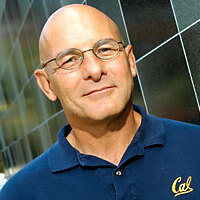
David Andrew Patterson is an American computer scientist and academic who has held the position of professor of computer science at the University of California, Berkeley since 1976. He is a computer pioneer. He announced retirement in 2016 after serving nearly forty years, becoming a distinguished software engineer at Google. He currently is vice chair of the board of directors of the RISC-V Foundation, and the Pardee Professor of Computer Science, Emeritus at UC Berkeley.
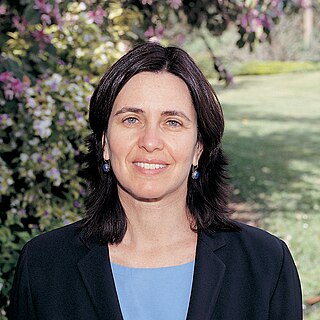
Shafrira Goldwasser is an Israeli-American computer scientist. A winner of the Turing Award in 2012, she is the RSA Professor of Electrical Engineering and Computer Science at the Massachusetts Institute of Technology; a professor of mathematical sciences at the Weizmann Institute of Science; the director of the Simons Institute for the Theory of Computing at the University of California, Berkeley; and co-founder and chief scientist of Duality Technologies.
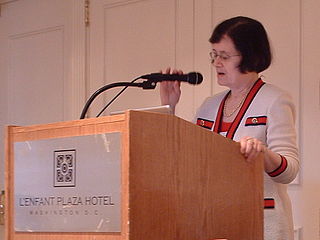
Barbara Bluestein Simons is an American computer scientist and the former president of the Association for Computing Machinery (ACM). She is a Ph.D. graduate of the University of California, Berkeley and spent her early career working as an IBM researcher. She is the founder and former co-chair of USACM, the ACM U.S. Public Policy Council. Her main areas of research are compiler optimization, scheduling theory and algorithm analysis and design.
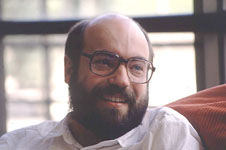
Mark D. Weiser was an American computer scientist and chief technology officer (CTO) at Xerox PARC. Weiser is widely considered to be the father of ubiquitous computing, a term he coined in 1988. Within Silicon Valley, Weiser was broadly viewed as a visionary and computer pioneer, and his ideas have influenced many of the world's leading computer scientists.
Scott J. Shenker is an American computer scientist, and professor of computer science at the University of California, Berkeley. He is also the leader of the Extensible Internet Group at the International Computer Science Institute in Berkeley, California.

Carlo Heinrich Séquin is a professor of Computer Science at the University of California, Berkeley in the United States.
Randy Howard Katz is an American computer scientist. He is a distinguished professor emeritus at University of California, Berkeley of the electrical engineering and computer science department.

Mendel Rosenblum is a professor of Computer Science at Stanford University and co-founder of VMware.
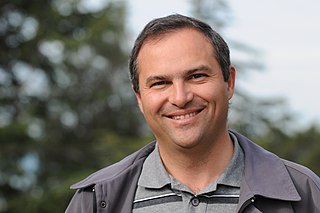
George Ciprian Necula is a Romanian computer scientist, engineer at Google, and former professor at the University of California, Berkeley who does research in the area of programming languages and software engineering, with a particular focus on software verification and formal methods. He is best known for his Ph.D. thesis work first describing proof-carrying code, a work that received the 2007 SIGPLAN Most Influential POPL Paper Award.
Hari Balakrishnan is the Fujitsu Professor of Computer Science and Artificial Intelligence in the Department of Electrical Engineering and Computer Science at MIT, and the Co-founder and CTO at Cambridge Mobile Telematics.

Jitendra Malik is an Indian-American academic who is the Arthur J. Chick Professor of Electrical Engineering and Computer Sciences at the University of California, Berkeley. He is known for his research in computer vision.

Ion Stoica is a Romanian–American computer scientist specializing in distributed systems, cloud computing and computer networking. He is a professor of computer science at the University of California, Berkeley and co-director of AMPLab. He co-founded Conviva and Databricks with other original developers of Apache Spark.

Jeffrey Adgate "Jeff" Dean is an American computer scientist and software engineer. Since 2018, he has been the lead of Google AI. He was appointed Google's chief scientist in 2023 after the merger of DeepMind and Google Brain into Google DeepMind.
Thomas E. Anderson is an American computer scientist noted for his research on distributed computing, networking and operating systems.
Marinus Frans (Frans) Kaashoek is a Dutch computer scientist, entrepreneur, and Charles Piper Professor at the Massachusetts Institute of Technology.

Valerie Elaine Taylor is an American computer scientist who is the director of the Mathematics and Computer Science Division of Argonne National Laboratory in Illinois. Her research includes topics such as performance analysis, power analysis, and resiliency. She is known for her work on "Prophesy," described as "a database used to collect and analyze data to predict the performance on different applications on parallel systems."
The ACM SIGOPS Mark Weiser Award is awarded to an individual who has shown creativity and innovation in operating system research. The recipients began their career no earlier than 20 years prior to nomination. The special-interest-group-level award was created in 2001 and is named after Mark Weiser, the father of ubiquitous computing.
Rajesh K. Gupta is a computer scientist and engineer, currently the Qualcomm Professor in Embedded Microsystems at University of California, San Diego. His research concerns design and optimization of cyber-physical systems (CPS). He is a Principal Investigator in the NSF MetroInsight project and serves as Associate Director of the Qualcomm Institute. His research contributions include SystemC and SPARK Parallelizing High-level Synthesis. Earlier he led NSF Expeditions on Variability in Microelectronic circuits.

ACM SIGOPS is the Association for Computing Machinery's Special Interest Group on Operating Systems, an international community of students, faculty, researchers, and practitioners associated with research and development related to operating systems. The organization sponsors international conferences related to computer systems, operating systems, computer architectures, distributed computing, and virtual environments. In addition, the organization offers multiple awards recognizing outstanding participants in the field, including the Dennis M. Ritchie Doctoral Dissertation Award, in honor of Dennis Ritchie, co-creator of the C programming language and Unix operating system.
Sanjay Ghemawat is an Indian American computer scientist and software engineer. He is currently a Senior Fellow at Google in the Systems Infrastructure Group. Ghemawat's work at Google, much of it in close collaboration with Jeff Dean, has included big data processing model MapReduce, the Google File System, and databases Bigtable and Spanner. Wired have described him as one of the "most important software engineers of the internet age".












